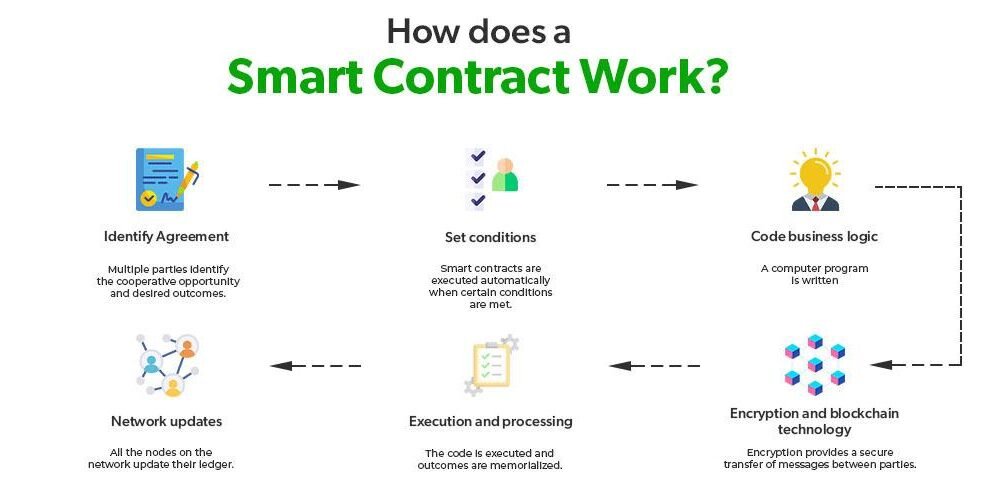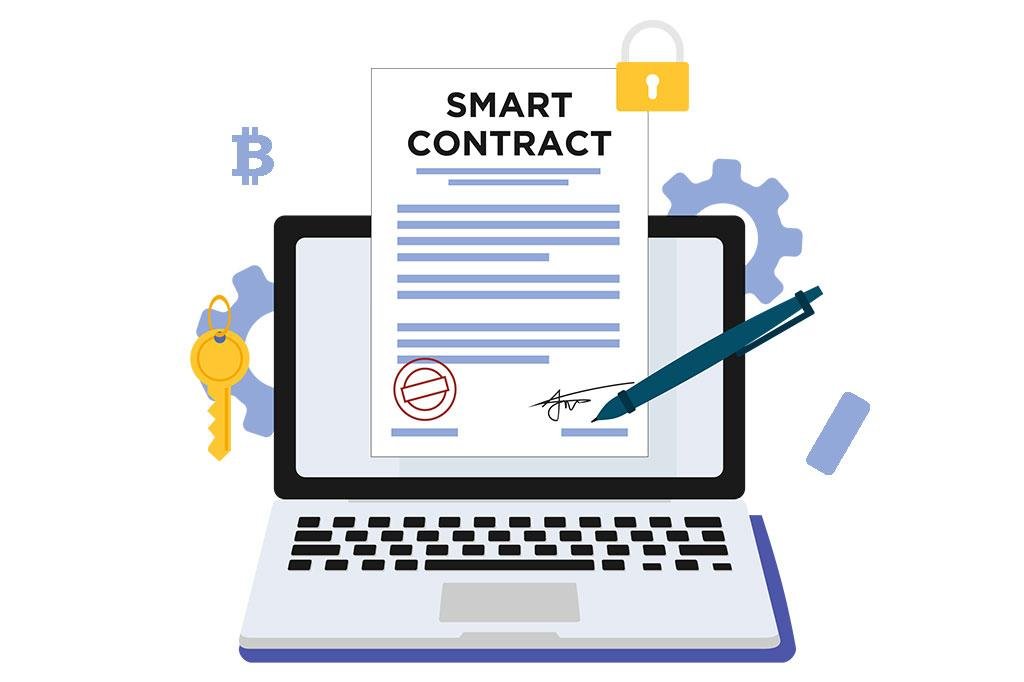Smart Contracts in Law: Revolutionizing Contract Management

Introduction
In a time of rapid technological change, the legal world is also undergoing a transformation. Smart contracts—a new innovation that combines technology with law—are changing how agreements are created, executed, and enforced. These self-executing contracts, where the terms are written into computer code, aim to make contract management simpler, reduce misunderstandings, and increase transparency between parties. As traditional legal frameworks face challenges, smart contracts offer a more efficient and precise way of managing agreements. This article will explore how smart contracts work, their impact on the legal profession, and what this technological shift means for both everyday transactions and large-scale deals.

Understanding Smart Contracts: The Technology Behind the Transformation
Smart contracts are digital agreements that automatically execute their terms once certain conditions are met. They operate on blockchain technology, which is a secure and transparent system that records all actions. These contracts don’t need middlemen (like lawyers or notaries) to enforce the agreement, which makes them faster, more cost-effective, and less prone to error.
Smart contracts can handle complex conditions and integrate with real-world data through “oracles,” making them versatile. As technology improves, industries are discovering new ways to use smart contracts for everything from processing payments to ensuring compliance with regulations.
Here are several advantages of smart contracts:
- Automation: Reduces human error and the need for ongoing management.
- Cost-effective: No need for intermediaries, reducing fees.
- Speed: Contracts are executed instantly when conditions are met.
- Security: Blockchain keeps data safe and tamper-proof.
| Aspect | Traditional Contracts | Smart Contracts |
|---|---|---|
| Execution | Requires manual processing | Automated execution |
| Disputes | Often leads to litigation | Prevention through transparency |
| Cost | High due to intermediaries | Lower operational costs |

Legal Implications of Smart Contracts: Navigating Compliance and Enforcement
Although smart contracts provide considerable advantages, they also bring up crucial legal issues. Since these contracts are decentralized (on the blockchain), it can be hard to determine which legal system applies. Some key issues to consider include:
- Regulatory Compliance: Smart contracts must follow laws in different countries, so understanding how they interact with current regulations is crucial.
- Enforceability: For a smart contract to be legally binding, it must meet traditional legal requirements like mutual consent and legality.
- Dispute Resolution: Traditional methods of resolving disputes (such as courts or arbitration) may need to be adjusted to deal with conflicts that arise from smart contracts.
To navigate these challenges, legal professionals with expertise in both technology and law are needed to help create agreements that are both legally sound and use smart contract technology effectively. Additionally, understanding who is liable if something goes wrong—such as if a code error causes a contract to fail—is essential.
| Scenario | Potential Liability |
|---|---|
| Code Bug | Developer liability for failures |
| External Attack | Securities fraud or regulatory fines |
| Failed Execution | Loss of trust or reputational damage |
You May Also Like: A Comprehensive Guide to AI Enhanced Contract Management in Legal Tech

Enhancing Efficiency: Streamlining Contract Management Processes
In today’s fast-paced business world, organizations are always looking for ways to improve efficiency. Smart contracts help by automating the entire contract process, from drafting to execution. This means legal teams can focus on important decisions instead of getting bogged down with paperwork and administrative tasks.
Some benefits of using smart contracts for contract management include:
- Reduced Time Delays: Processes are automated, speeding up negotiations and approvals.
- Increased Accuracy: Smart contracts ensure terms are executed as planned, minimizing human error.
- Better Compliance: Blockchain automatically ensures that all regulations and contract terms are followed.
Moreover, smart contracts provide real-time tracking, allowing stakeholders to monitor contract performance and make sure all terms are being met.
| Metrics | Before Smart Contracts | After Smart Contracts |
|---|---|---|
| Time to Execute Contracts | Average 15-30 days | Average 2-3 days |
| Error Rate | 10% | 1% |
| Compliance Issues | 20% | 2% |

Recommended Approaches for Integrating Smart Contracts into Legal Systems
To successfully implement smart contracts, it’s essential to follow best practices. Legal professionals should carefully review the contract code to make sure it aligns with current laws. Clear definitions of terms should be included in the code to avoid confusion or disputes.
Here are some best practices:
- Legal Review: Work with legal experts to ensure the contract meets all legal requirements.
- Clear Definitions: Use precise language in the contract terms to avoid ambiguity.
- Documentation: Keep detailed records of the coding, decisions, and testing processes.
- Data Management: Protect sensitive information and comply with privacy laws.
- Compliance Matrix: Create a tool to track how the contract meets legal standards.
| Best Practices | Description |
|---|---|
| Legal Review | Engage legal professionals to ensure compliance with existing laws. |
| Clear Definitions | Use specific language to avoid ambiguity in contract terms. |
| Documentation | Maintain detailed records of the coding, decisions, and processes. |
| Data Management | Implement measures to protect sensitive information. |
| Compliance Matrix | Create a tool to visualize alignment with legal standards. |
To Conclude
The rise of smart contracts represents a major shift in how legal agreements are managed. These contracts offer greater efficiency, transparency, and security, and as businesses and legal professionals adopt this technology, the benefits become clear. Although challenges remain—especially in terms of legal recognition and integration—smart contracts are changing the way contracts are executed and enforced.
As we move forward, it will be exciting to see how this evolution shapes the future of contract law. The future of contract management may very well be written in code, and those who embrace this change could redefine the future of legal practice in groundbreaking ways.



































































































































































































































